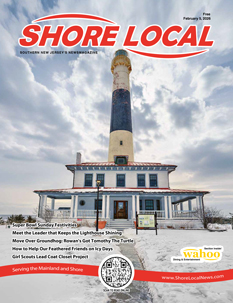Twenty-four years ago, I held my one-year-old son close, unable to stop the tears. The world felt smaller, darker, and unbearably fragile. For many of us who lived through Sept. 11, 2001, that day is etched into our memories. We remember where we were, who we were with, and the overwhelming flood of fear and uncertainty. The images on television were relentless: the towers collapsing into rubble, people covered in white ash running for their lives, first responders racing to help, white dust and mangled steel, faces stained with tears and terror. In recalling these scenes, I can almost feel the hopelessness and profound sadness that stayed with me for months after that horrific day. For parents, the fear was magnified by thoughts of the world our children would inherit. For soldiers, first responders, and civilians alike, the trauma left invisible scars, echoes that are still felt today.
While the anniversary of 9/11 often brings grief and reflection, it also serves as a reminder of how profoundly trauma can shape our lives. Trauma is not reserved for a single moment or event. It can accumulate over time, a slow drip of worry, fear, and stress, or hit all at once with devastating intensity. For many, repeated exposure to distressing news and images, which some experts call “oversaturation,” can intensify that trauma, leaving people anxious, numb, or perpetually on edge. Soldiers returning from deployment, first responders, and even civilians watching the news 24/7 can experience symptoms of post-traumatic stress disorder, or PTSD, which may include flashbacks, difficulty sleeping, irritability, and emotional numbness.
Oversaturation of bad news is not new. However, in the modern digital age, it has become overwhelming. Social media, 24-hour cable news, and instant notifications can make it feel as if every tragedy is happening right outside our front doors. For those already carrying trauma, this constant bombardment can worsen anxiety and intensify feelings of helplessness. Even those who never experienced the original trauma may feel its effects through secondary stress, a phenomenon sometimes called vicarious trauma.
So what can we do? The first step in coping with trauma and news overload is simply acknowledging it. Understand that your reactions are normal and that your body and mind are responding to stress in real time. Whether it’s heightened alertness, trouble sleeping, irritability, or sudden waves of sadness, these are signals that something in your environment has activated your body’s survival instincts. For soldiers and first responders, these reactions can be intensified by training and experiences in high-pressure situations, while parents may feel the weight of stress as they worry about their children’s safety and future.
Setting boundaries with media consumption is critical. It’s natural to want to stay informed, but there is a difference between awareness and immersion. Consider limiting news intake to specific times of day, unfollowing sources that trigger anxiety, or choosing reliable outlets that focus on facts without sensationalism. Mindful engagement, rather than constant exposure, allows your nervous system to rest.
Community support also plays a powerful role. In the aftermath of 9/11, neighborhoods, schools, and workplaces became hubs of shared grief and resilience. Talking with others who understand your experience, friends, family, or support groups can help process emotions and reduce feelings of isolation. For soldiers and first responders, peer support and professional counseling are essential tools for managing PTSD symptoms and preventing burnout.
Daily routines that nurture body and mind are equally important. Physical activity, proper sleep, and a balanced diet help regulate stress hormones and boost resilience. Mindfulness practices such as meditation, deep breathing exercises, or journaling can provide a safe space to process overwhelming feelings. Even simple acts, a walk on the beach, listening to calming music, or spending uninterrupted time with loved ones, can counterbalance the chaos of external stressors.

It’s also important to acknowledge that healing does not mean forgetting. Trauma does not vanish, but we can learn to live with it, build coping strategies, and find meaning in recovery. Many survivors of 9/11, first responders, and veterans report that giving back, through volunteering, mentoring, or advocacy, helps transform trauma into purpose. By supporting others, we not only strengthen our communities but also cultivate resilience in ourselves.
For parents, how we cope with trauma impacts our kids. Children are growing up in a world that can still feel uncertain, and they watch closely how we handle fear and challenges. By responding with calm and composure, keeping conversations open, and modeling healthy self-care, we can teach them coping skills and resilience that can last a lifetime.
Twenty-four years later, my son is now grown, but the memory of that September morning remains vivid. Since that time, we have all lived through countless other tragic events, and even some personal tragedies. While uncertainty in the world hasn’t disappeared, we can temper it with tools, strategies, and connections. We can learn to protect our mental health, to limit exposure to constant bad news, to rely on the comfort of family and friends, and to acknowledge our feelings without letting them define us. Trauma may leave its mark, but it does not have to dictate the quality of our lives.
Whether you are a soldier, a first responder, a parent, or someone processing personal trauma, the challenge remains the same: navigating a world filled with reminders of pain while cultivating practices that sustain hope, resilience, and well-being. By acknowledging the weight of our experiences, setting boundaries, seeking support, and caring for our bodies and minds, we can move forward, not forgetting, but learning to live fully and meaningfully despite the memories of our past.
Robin is a former television reporter for NBC News 40. She currently hosts a podcast and radio program called Living Well with Robin Stoloff. It airs Sundays at 10 AM on Lite 96.9. You can email Robin at livingwellwithrobin@gmail.com

















